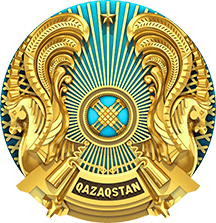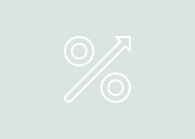Press release №21. The base rate remains unchanged at 9.5%
The situation in the world economy has stabilized and recovery is observed in selected goods and financial markets. The oil consumption has started to resume due to the certain economic recovery signs of China, easing of the quarantine measures in some EU countries and USA. OPEC countries reached a preliminary agreement on the extension of the oil production deal. Oil production cuts by 9.7 mln barrels per day will last until the end of July 2020. Along with that, both the COVID-19 and restrictive measures against the spread of the infection taken in many countries all around the world continue to negatively influence the world economy. In May 2020 the business activity indicators were close to the historical minimum. This situation negatively affects the economic activity and the inflationary processes in Kazakhstan.
Apart from the external situation, the pressure on the consumer prices in Kazakhstan is also being applied by the internal factors. The significant fiscal and quasi-fiscal impulse increases the inflationary pressure, caused by the exchange rate pass-through and weakly anchored inflation expectations. At the same time, the weak consumer demand has a deterrent effect on the inflationary processes.
The further monetary policy decisions will be based on the dynamics of the development factors in the world commodity markets, the recovery of the economic activity, and also the extent of deviation of the actual dynamics of inflation from the forecasted trajectory.
The annual inflation rate is exceeding the targeted range of 4-6% set for 2020-2021. In May 2020 the annual inflation rate amounted to 6.7% (6.8% in April 2020). The inflationary processes get formed under the influence of the quarantine measures in Kazakhstan and in the countries-main trade partners and also of the tenge depreciation and its pass-through into the domestic prices.
The main contribution to the dynamics of the inflationary processes is made by the rise of food prices, which increased by 10.7% in annual terms, reaching the maximum level since October 2016. Acceleration of the food inflation resulted from both the increased demand for the certain goods and the limited supply due to the disruption of commodity and goods supply chains under conditions of compliance with the quarantine measures. The dynamics of non-food inflation remains moderate; the annual increase was 5.3%. Increase of the prices on the paid services slowed down to 3.0% as the result of the negative contribution of regulated utility prices.
The National Bank has reconsidered its forecast of inflation until the end of the current year. In the framework of developing the forecast of economic development of Kazakhstan for 2020-2024, which assumed the scenario with the oil price level in the range of 20-25 US dollars per 2 barrel, which was considered as the base scenario by the Government for the aims of anti-crisis plan, the inflation rate was estimated to be in the range of 9-11% by the end of the current year. According to the updated estimates for the oil market and base scenario of the National Bank, setting the oil prices at the level of 35-40 US dollars per barrel on average in 2020, the annual inflation rate is forecasted to be in the range of 8.0-8.5% as of the end of 2020.
The inflation expectations remain relatively stable. After the increase of the quantitative assessment of the inflation expectations for a year ahead to 6.4% in March 2020, it was in the range of 6.0-6.2% in April-May, reflecting the improvement of the consumption sentiments associated with positivity increase regarding the perspectives of the economic development and the financial condition due to the gradual easing of the quarantine measures. The share of the survey participants, expecting the maintaining the current rate of price increase and its decrease, increased from 56% in April to 62% in May. Nevertheless, the inflation expectations remain weakly anchored, which in the short-term perspectives might influence the consumer prices.
The declaration of the state of emergency and the introduction of the quarantine measures against the pandemic COVID-19 in the country contributed to the deterioration of the economic activity. According to the data of Statistics Committee of Ministry of National Economy, in January-April 2020 the GDP has decreased by 0.2% in annual terms as the result of the decline in the wholesale and retail trade by 34.8%, transport services – 36.6% in April. The deceleration of the economic activity in certain sectors of the manufacturing industry due to the external and domestic demand drop was being observed. However, the transfer of workers to the remote work and the introduction of the online learning led to the expansion of the communication and delivery services. The positive contribution was also made by the industries of healthcare, public administration, extraction sector and agriculture.
In spite of the gradual easing of the quarantine measures in May-June 2020, the economic activity remains under the negative influence of the imposed restrictions. Nevertheless, some economic recovery is being confirmed by the rise of the business activity indicator, according to the preliminary data, to 44.0 points in May 2020 (in April 2020 – 37.2) which is formed based on the monthly business surveys conducted by the National Bank.
The aggregate demand in the second quarter of 2020 remains suppressed, constraining the inflationary pressure. According to the assessment data of the Statistics Committee of Ministry of National Economy, there was a sharp decline of salary growth rates coupled with the increase of the number of people who turned to the employment authorities for the job-placement assistance. The investment activity in the economy is decelerating. In January-April 2020 the growth of investments in fixed assets amounted to 0.9% in annual terms.
According to the baseline forecast of the National Bank, as the result of the negative influence of the internal supply and the net export the real GDP in 2020 will decrease by 1.8%, taking into the account the support that will be provided by the significant growth of the consumption by the public administration sector (fiscal and quasi-fiscal impulse). Subsequently, the economy will recover to the potential level in a context of the expected improvement of the epidemiological situation in the country, labor market recovery, and also household income growth.
The investment activity will recover as the result of the internal and external demand growth, improvement of the price level in the world commodity markets, and also the recommencement of the investment projects that were postponed this year.
Estimates of growth prospects of the countries–main trade partners of Kazakhstan remain negative. According to the forecasts by Consensus Economics in 2020 the economy of EU will contract by 7.7%, Russia – by 4.1%, economy of China – 1.4%. Next year the quick recovery of the indicators in all countries-partners is expected. Thus, the economy of EU will expand by 6.2%, economy of Russia – by 3.8%, economy of China – by 8.1%.
Situation in the oil market is improving, however the price level remains relatively low and the outlined dynamics is still unstable. The average monthly price for Brent oil was 32.4 US dollars per barrel in May 2020, i.e. increased by 20.7% over a month. The positive influence on the price level in the world oil market is done by the enactment of the OPEC agreement since May 1, 2020 and the reduction of the oil production in the non-OPEC countries and also by the recovery of the oil consumption, production and transport services in China, the easing of the quarantine measures in some European countries and USA. The additional positive impulse to the oil market is expected to be as the result of the extension of the high reduction of the production by the OPEC countries until the end of July 2020. Nonetheless, the risks, arising from the breach of discipline by some of the OPEC countries, the high level of oil reserves in the world and the possible deterioration of relations between the USA and China, persist.
In the first quarter of 2020, according to the preliminary data, the current account had a surplus in the amount of 1.2 bln US dollars as the result of the high oil production level and relatively high futures prices formed in the fourth quarter of 2019. However, in 2020 the National Bank expects the significant deterioration of the current account with the deficit, which is caused by the oil and metal prices drop, the contraction of their production, the reduction of the external demand for the export goods of Kazakhstan due to the deceleration of the world economic activity. Reduction in import will be less significant because of the implementation of the state programs and initiatives. The deepening deficit of the current account will put pressure on tenge exchange rate.
As the uncertainty on key trends in the external markets decreases and provided that the situation develops in accordance with the estimates of the National Bank, the easing of the monetary policy conditions is not being ruled out.
The next decision of the National Bank of Kazakhstan on the base rate will be announced on July 20, 2020 at 15:00 Nur-Sultan time.




